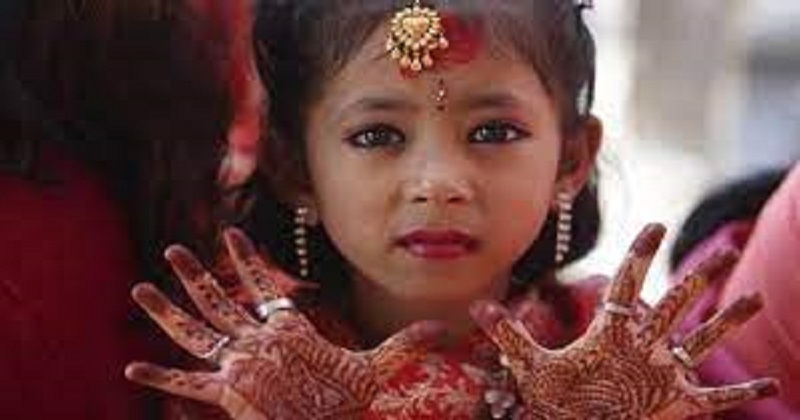
Is there a possible policy tool that governments can use to discourage child marriage? According to a multidisciplinary international team including Stanford and Duke researchers, cooking oil holds the key to the secret. The researchers concluded that offering cooking oil as an incentive to girls and their families can convince them to defer marriage after a multi-year study conducted in Bangladesh, which has the second-highest prevalence of child marriage after Niger (Africa).
According to a study titled ‘A Signal to End Child Marriage: Theory and Experimental Evidence from Bangladesh’, the cooking oil incentive reduced child marriage under age 18 by 17%, and below 16 by 18%. To reach this conclusion, oil was distributed to families of girls aged 15-17 upon agreement that they would not be married underage.
Nina Buchmann of Stanford University’s economics department led the study. Developed in partnership with the US-based humanitarian organization, Save the Children, it involved 460 rural communities in six sub-districts of south-central Bangladesh in a randomized trial. Researchers chose cooking oil because of its utility in a Bangladeshi household. Every family in Bangladesh must purchase it regularly, making it a close substitute for cash, the researchers stated, adding that it has a high value-to-volume ratio, which reduced transportation costs.
While the researchers discussed the findings earlier, the study, which took place between 2007 and 2017, was published earlier this month as a working paper by the National Bureau of Economic Research (NBER), a US-based private non-profit that conducts economic research. NBER working papers are not peer-reviewed and are meant for discussion and comment.

Emancipation versus cooking oil
Child marriage is still prevalent in many parts of the world, including countries where it has been declared illegal. The United Nations International Children’s Emergency Fund (UNICEF) reported in April 2020 that 29% of women in south Asia aged 20 to 24 were married before turning 18. UNICEF estimates the figure to be 51% for Bangladesh. India, meanwhile, accounts for 1 in 3 of all child brides in the world.
Although child marriage is more common among girls, it is equally harmful to boys. Child marriage can cause underage pregnancy, which can be harmful to both mother and child, as well as interruption of education. Researchers in their study offered two broad incentives to adolescents – cooking oil was ‘financial’, while the second approach offered empowerment training.
The first group involved girls aged 15-17 who were given $16 worth of oil each year at regular intervals, for up to two years or until they turned 18, as long as they remained unmarried, while the researchers tracked their age, marital status, etc. This was made possible by Save the Children’s food security program for pregnant and lactating women.
Under the empowerment program, girls were welcomed to an outreach program- ‘Kishoree Kontha (adolescent women’s voice)’, under which girls aged 10-19 were taught ‘life skills, negotiation, legal rights of women and nutritional and reproductive health knowledge through a curriculum designed by ‘Save the Children USA’, which essentially results in reducing conservatism among women. The program ran from 2007 to 2010. Four and a half years later, the authors surveyed the beneficiaries for a survey that was completed in 2017.
Read more: TikTok Likely to Return to India as TickTock
Teen pregnancy declines, too
Girls aged 15 at the beginning of the program, who were given cooking oil, were 18% more likely to be in school and completed an additional three months of schooling. The delay in marriage age also led to fewer teenage pregnancies. Overall, the researchers found a 7% decline in teenage pregnancy among women in the incentive group.
The researchers said that dowry increased by 7% for women in the empowerment section, suggesting dowry nullified the positive impact of such empowerment programs. Researchers say their work provides novel evidence that child marriage is not a deeply-held preference that is hard to shift in Bangladesh, adding that it ‘demonstrates that policies aimed at changing preferences may be misdirected’. According to them, economic incentives can be highly effective in reducing the number of underage brides.

Post Your Comments